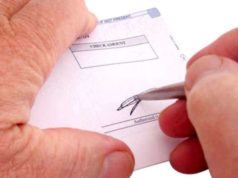
What is Bankruptcy?
1. Bankruptcy is a Federal program that enables an individual (or business entity) to alleviate them from massive debts incurred. A bankruptcy filing enables various entities to restructure their debt obligations through liquidation or restructuring.
2. As a result of these characteristics, bankruptcy claims offers those in debt to seek relief through an alternative payment plan or liquidation process. Liquidation means that the debtor’s assets (e.g., cars or mortgage) are sold off and the proceeds of the sale are then used to fulfill their debt obligations.
3. All bankruptcy claims are a part of a Federal program. As a result, the laws and regulations which govern the claims are distributed and heard at the Federal level. In other words, individuals or business entities may not file for bankruptcy at the local level. That being said, each claim is filed through the Federal court system that oversees your particular jurisdiction.
4. Individuals and business entities who file bankruptcy do so to free themselves from the constraints of creditors who perpetually seek repayment. Through the inclusion of a Government agency, those individuals and entities struggling with debts can reorganize their debt structure by supplying incremental payments to their creditors. There are many different forms of bankruptcy filings, the most common being: Chapter 7 filings, Chapter 11 filings, and Chapter 13 filings.
Common Bankruptcy Questions
If you need legal advice and assistance, contact bankruptcy lawyers.
1. Does Filing for Bankruptcy Affect my Credit Rating?
Credit ratings will be affected when an individual or business entity files for either a Chapter 7 bankruptcy or Chapter 13 reorganization petition. That being said, the extent and the intricacies involved in the credit rating system are dependent on a number of individual factors.
The most substantial factor associated with credit ratings is the underlying debtor’s credit score at the time their bankruptcy filing was initiated. If your credit rating is near perfect or perfect, your score will be impaired. However, if your credit score was terrible to begin with, filing for bankruptcy will actually improve your score.
2. Am I Protected from Repossession?
Repossession refers to a creditor’s ability to seize or take back assets because of the buyer’s inability to meet the loan obligations attached. A creditor’s ability to repossess an item will depend on whether the loan received was secured or unsecured. If the buyer fails to repay a secured loan (meaning the goods purchased were used as collateral, such as cars or mortgages), then the creditor has the ability to repossess the good attached. If the debtor fails to repay an unsecured loan (e.g., credit card or medical bills), the creditor does not possess the ability to repossess any assets.
3. Can Filing for Bankruptcy Help my Tax Issues?
The Bankruptcy Code provides protection to anyone filing bankruptcy. As a result, taxing authorities (including the Federal Government) possess a limited ability to affect your property while your bankruptcy claim is active. The filing of a bankruptcy claim may halt activity for the collection of taxes owed. A Chapter 13 bankruptcy can offer monthly payments of your tax obligations without additional interest or penalties. In contrast, Chapter 7 and Chapter 13 can reduce or eliminate certain tax obligations that were owed for more than three years.


















